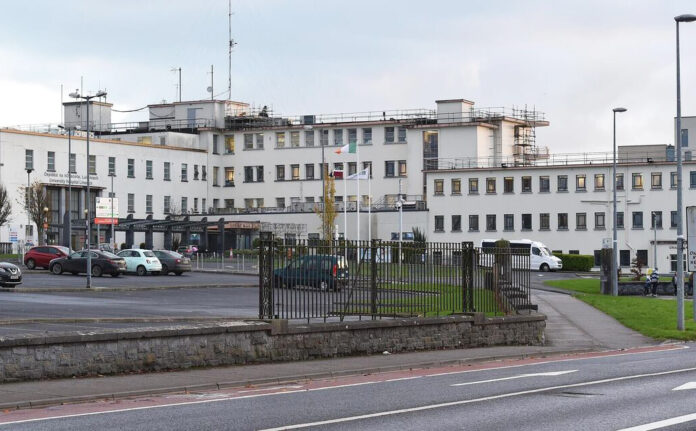
GRIEF-STRICKEN families shared their late loved one’s harrowing experiences in a documentary which aired this week, ‘UHL: Ireland’s Hospital Crisis‘.
The documentary, which screened on Virgin Media on Monday night (October 21), heard from living family members about what happened during and after their now deceased relatives went to the emergency department (ED) at University Hospital Limerick (UHL) for care.
Karina Leahy, whose father Patrick ‘Pa’ Leahy passed away in UHL in 2023, said he was “tortured from the minute he went in the door”.
“Over a three-week period, he was consistently and progressively deteriorating, which just blows my mind that none of his care was escalated to the right people,” she told reporter Richard Chambers.
Ms Leahy said that her family believes that opportunities were missed to give Pa the care he needed, claiming that “he was failed at every step. I wish, so much, that I had taken him out of there.”
She said that despite medical staff knowing that her father had suffered an internal bleed, he spent two days on a trolley before being admitted despite being “so unwell”.
“We thought surely he would be brought up to a ward. But no, there were no beds.”
Mr Leahy was moved to a high dependency unit when a scan revealed he had cancer. But he had spent weeks in hospital by then.
“Dad worked so hard all his life. He paid his taxes and he paid insurance to have support in his hour of need. He didn’t get it,” she said.
Melanie Cleary, who was recently honoured with an award for her work on raising awareness of thrombosis, spoke about the death of her daughter Eve in 2019.
Eve presented at the UHL ED after a fall in the city. After being seen by doctors, she was sent home. Returning to the hospital again following a heart attack later that night, it was discovered that the 21-year-old had developed a clot and died from thrombosis.
Ms Cleary said told interviewers: “I just wish they had listened and learned from our beautiful Eve’s death. If they had, maybe other people might still be alive today. And maybe if they had listened before Eve, maybe Eve would still be here today.”
Ms Cleary is now standing as an Independent candidate in the coming general election as a representative of the Mid West Hospital Campaign, demanding the reopening of three ED’s at St John’s Hospital (Limerick) and Ennis and Nenagh Hospitals, which were previously closed and reconfigured to UHL in 2009.
She told the programme that, despite frequent requests, Health Minister Stephen Donnelly has never met her to discuss her daughter’s death.
One Newcastle West GP, Dr Michelle O’ Connor, told the programme about patients who “specifically refuse to go to Limerick (UHL) because they’ve had bad experiences.” She outlined how the UHL ED is the only crisis facility for a population of 400,000.
Also interviewed was Mary Fogarty, INMO assistant director of industrial relations, who deemed the closing of the St John’s, Nenagh, and Ennis EDs in 2009, before supports were put in place in UHL, as “a mistake” which has hugely contributed to the current overcrowding situation.
A report of the operations of the ED at the time of the death of Shannon teenager Aoife Johnston in December 2022 by former Chief Justice Frank Clarke found that if she had been treated in time with antibiotics for sepsis, “her death was almost certainly avoidable”.
The Clarke report found the UHL ED was in such confusion that “there was no reality” to care plans that night.
Mr Clarke said there were lost opportunities where someone could have realised how sick 16-year-old Aoife was and taken action. A system to alert staff of patients in crisis proved “inadequate” in light of the high patient numbers that night.
It was reported this week that the Johnston family have settled a High Court action against the HSE over her death at UHL.
In the High Court proceedings, it was claimed there was a failure to have sufficient staff on duty in the UHL ED which led to gross delays in her treatment.
It was also alleged that there was a failure to treat her as a seriously ill patient in a timely fashion.
The details of the full settlement, which is confidential, also includes a claim for nervous shock. All civil actions in relation to the death have now been settled.


